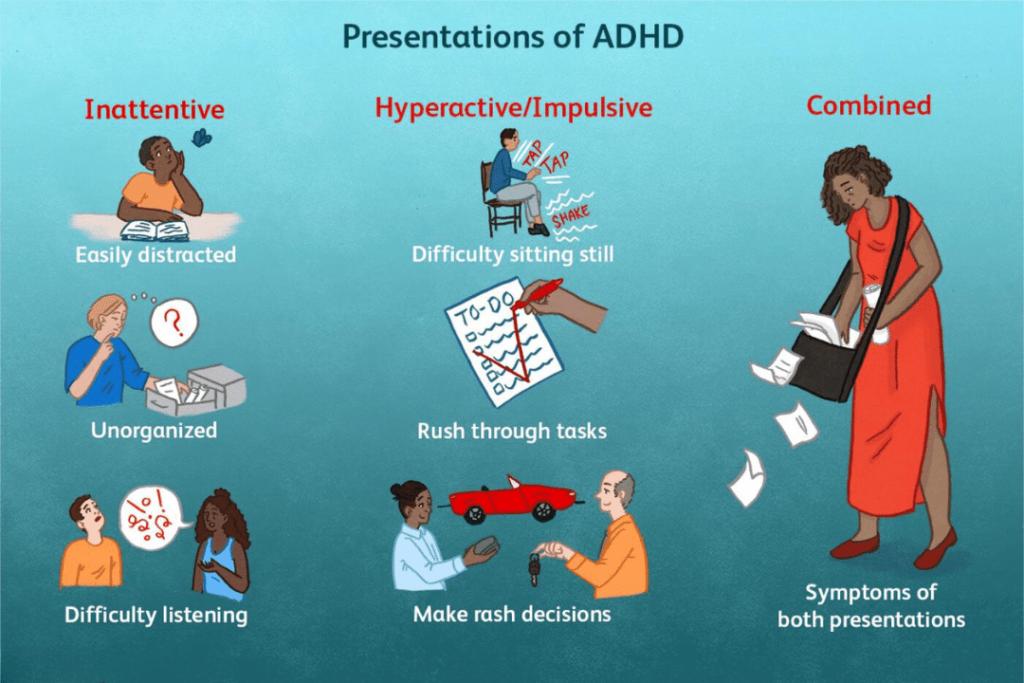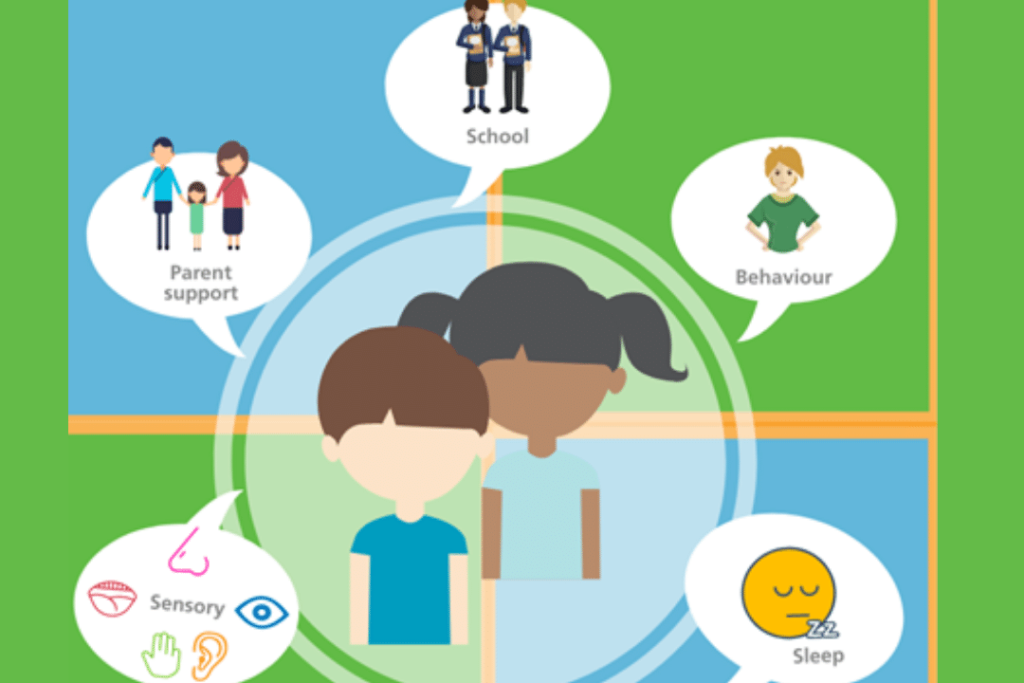Attention-Deficit/Hyperactivity Disorder, or ADHD, is a neurodevelopment disorder that mostly affects children but can also last into adolescence and adulthood. This complicated condition shows up as a combination of major symptoms, such as:
-Inattention: People with Attention-Deficit/Hyperactivity Disorder frequently struggle to focus and pay attention to tasks or activities. They might regularly commit casual errors, struggle with task organization, show resistance to persistent mental effort, and misplace crucial objects needed for everyday tasks.
-Hyperactivity: Some people with ADHD exhibit hyperactive behaviors, which include talking excessively, moving around a lot, and having trouble staying seated when it’s appropriate. This increased degree of activity is frequently regarded as being inappropriate in the current circumstance.
-Impulsivity: Impulsivity is the tendency to make snap judgments and act without fully weighing the repercussions. People with Attention-Deficit/Hyperactivity Disorder may have trouble controlling their impulses, which can show up as problems waiting their turn, interrupting others, or making snap decisions without giving them the time to think.
There are three major subtypes of Attention-Deficit/Hyperactivity Disorder (ADHD):

Predominantly Inattentive presentation: Formerly classified as “Attention-Deficit Disorder” (ADD), this subtype is characterized by symptoms that are largely inattentive and lack considerable hyperactivity or impulsiveness.
-Predominantly Hyperactive-Impulsive presentation: This subtype primarily displays symptoms of hyperactivity and impulsivity, with less pronounced inattentive symptoms.
-Combined Presentation: The symptoms of the combined subtype involve inattention, hyperactivity, and impulsivity.
Both parents and educators of Children with ADHD, who number around six million, frequently notice the particular difficulties these kids encounter. Children with Attention-Deficit/Hyperactivity Disorder may have trouble keeping their focus, reining in their urges, and remaining calm. Focusing on homework at home can be particularly difficult. However, there are proactive steps that parents may take to offer priceless support and assistance.
Children with ADHD can succeed and gain abilities in a variety of areas, according to Mariel Benjamin, a licensed clinical social therapist and director of groups at the parenting website Cooper. While success may not always be simple, progress is an ongoing process of growth and improvement.
Here are some methods for parents to assist kids with ADHD all academic year:
-Design a Daily Checklist for School Preparation: For kids with ADHD, creating a daily checklist is a crucial tool. It fosters independence and makes the process of getting ready for school simpler. Checklists are frequently used to foster independence and consistency.
-Set Timers: Children with Attention-Deficit/Hyperactivity Disorder sometimes struggle with time management and switching between projects. Children who use visual or audible timers can develop a feeling of urgency and stay on task, whether it’s for finishing homework or following morning routines at school.
-Keep Organized: Encourage organizational skills in kids by giving them supplies like binders, planner sheets, and file folders. Children can keep track of due dates for assignments and homework thanks to these resources. Keeping lockers with shelves and bins organized helps improve overall organization.

Encourage fidgeting by acknowledging that certain ADHD youngsters benefit from sensory stimulation. Making modifications like standing desks or sitting balls or allowing them to use fidget toys can help them focus better and manage their energy.
-Advocate for a 504 Plan: A 504 plan provides a useful framework for schools to make modifications for students with ADHD under the Rehabilitation and Americans with Disabilities Act. These modifications may take the form of altered schedules or longer assignment hours. To determine their eligibility and submit requests for these helpful adjustments, parents should work with the school.
In conclusion, by applying tactics like daily checklists, timers, organizational tools, fidget toys, and pushing for 504 plans, parents play a crucial part in assisting children with Attention-Deficit/Hyperactivity Disorder to thrive. Children with ADHD can effectively traverse the school year with the correct support, developing important life skills in the process.






[…] and manage time is known as time blindness. Research shows that while it is frequently linked to Attention Deficit Hyperactivity Disorder (ADHD), our perception of time is directly related to our emotional moods and general wellbeing. The […]